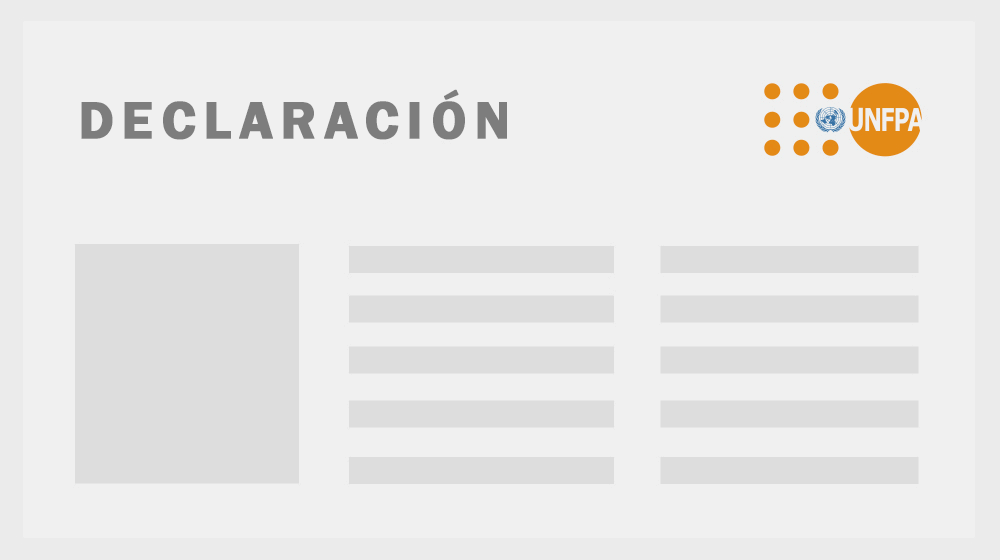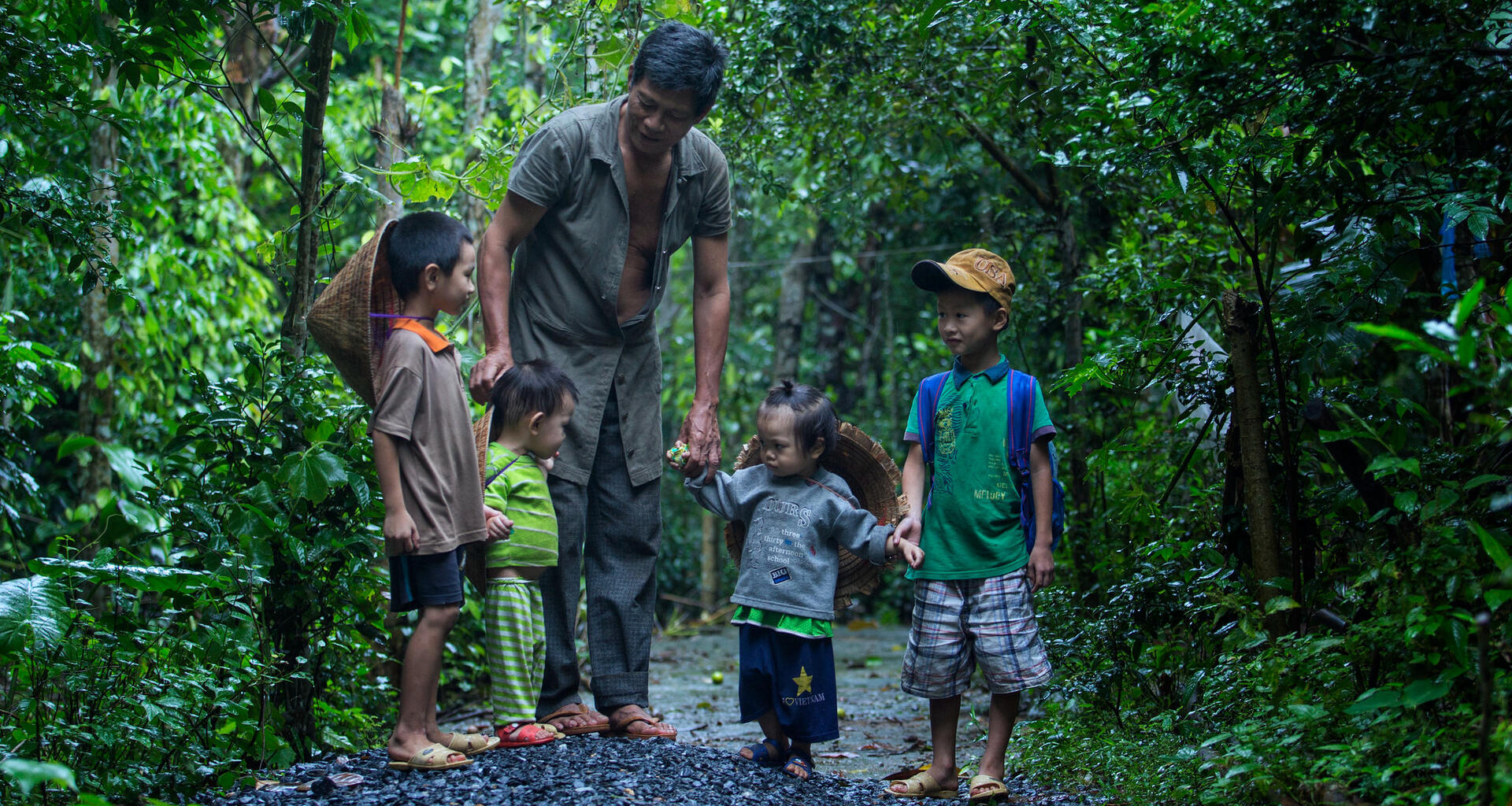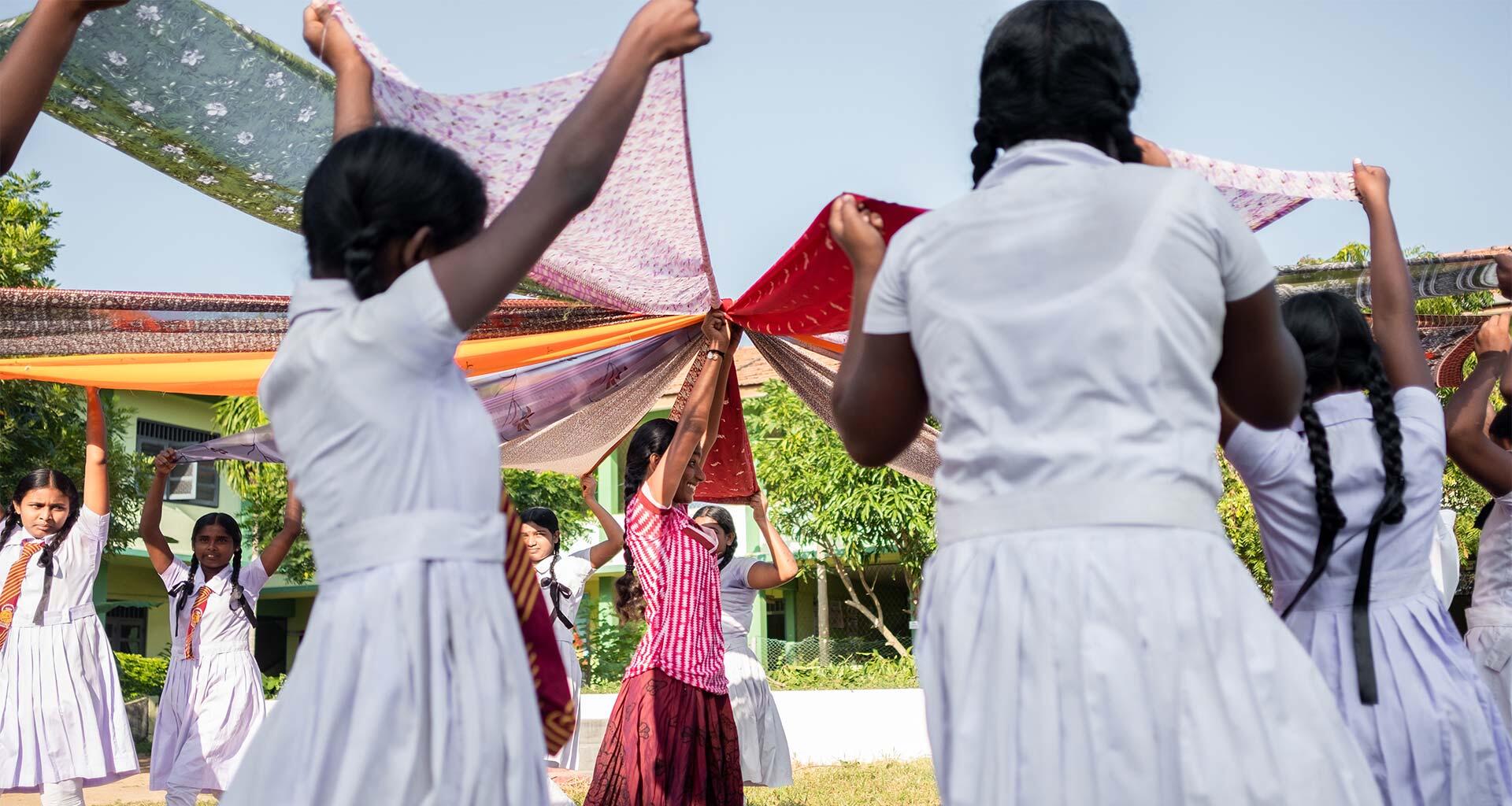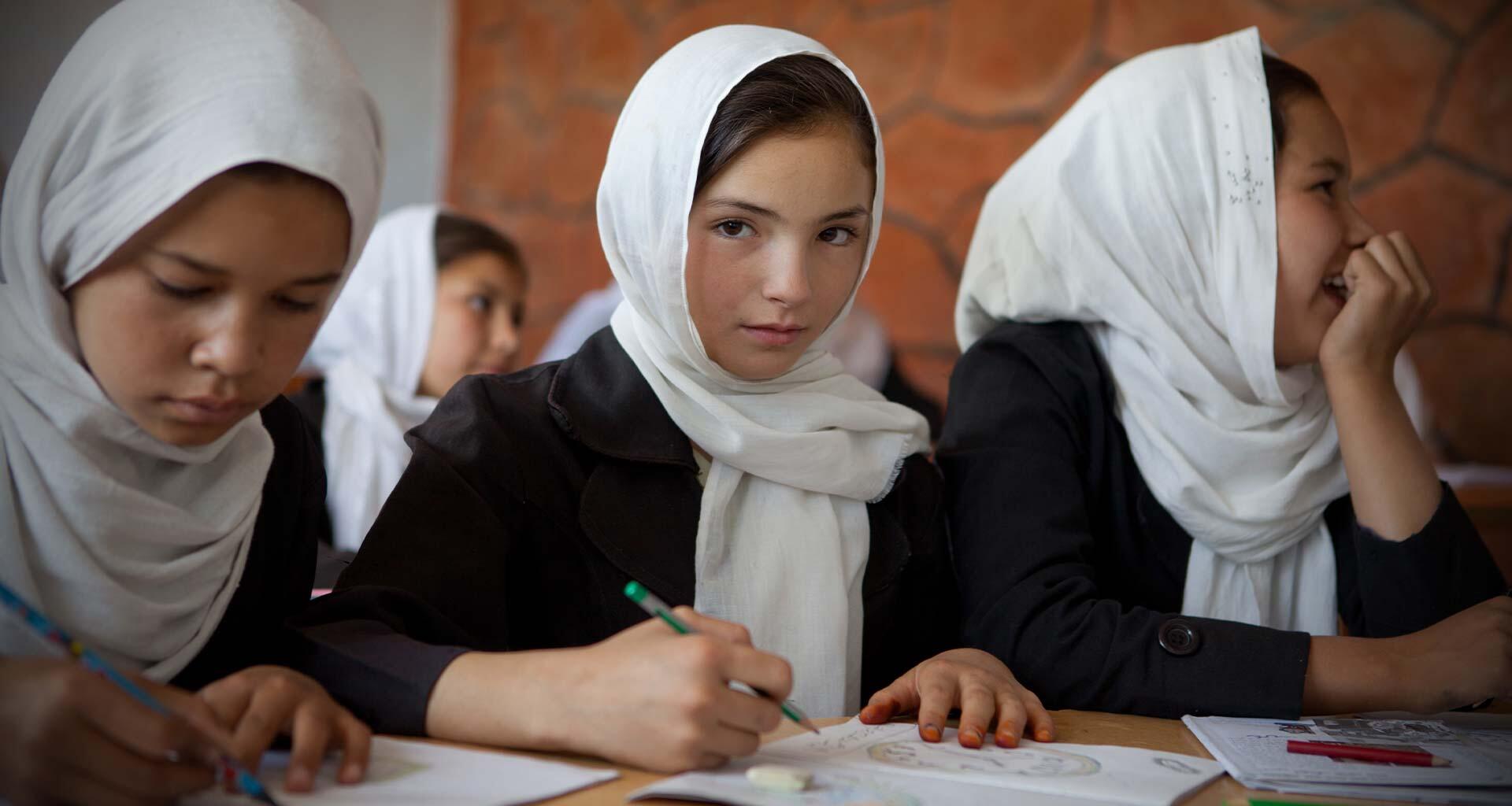El UNFPA trabaja para abordar de manera integral la violencia de género en todo el espectro de acciones humanitarias, de desarrollo y de respuesta a la paz en más de 150 países y territorios de todo el mundo. Solo en 2022, el UNFPA invirtió más de 454 millones de dólares en eliminar la violencia de género y las prácticas nocivas.
El UNFPA trabaja en asociación con organizaciones, redes y movimientos feministas de mujeres y jóvenes, organizaciones de la sociedad civil, gobiernos, institutos académicos y de investigación y otros asociados para apoyar iniciativas que pongan fin a la violencia contra las mujeres; también a través de programas de prevención, prestación de servicios, políticas y leyes y datos e investigación.
Respuesta a la violencia de género en todos los contextos
El UNFPA apoya respuestas integrales y centradas en las sobrevivientes en contextos humanitarios y de desarrollo mediante una atención sanitaria de calidad, servicios sociales y apoyo jurídico y judicial. El enfoque del UNFPA se centra en el derecho a la seguridad, confidencialidad, no discriminación y autodeterminación de todas las sobrevivientes. Puede consultar la guía Flourish: Plan Operativo del UNFPA contra la Violencia de Género.
Sin duda, los cambios demográficos y los retos relacionados con el cambio climático, la naturaleza prolongada de las crisis y la frecuencia de los conflictos, así como los movimientos de población, están logrando que las distinciones convencionales entre programación «humanitaria» y «de desarrollo» sean cada vez más irrelevantes. En ambas situaciones se ha producido un aumento espectacular de la violencia de género. Trabajar a lo largo de todo el espectro de respuesta ayuda a garantizar la coherencia entre las acciones de desarrollo, humanitarias y de respuesta a la paz. En todos los contextos, nuestras iniciativas están orientadas a reforzar la preparación y promover el desarrollo a largo plazo, así como a mejorar las capacidades locales centrándonos en la reducción de riesgos y el desarrollo de la resiliencia, entre otros aspectos. Documentos guía clave: Estrategia y Plan Operativo del UNFPA para Ampliar y Fortalecer las Intervenciones contra la Violencia de Género en Situaciones de Emergencia 2023-2025 y Abordar la Violencia de Género en todos los Contextos.
Una iniciativa clave para las sobrevivientes es la integración de servicios esenciales de salud sexual y reproductiva en programas, políticas y actividades de promoción en numerosos sectores. Dado que los servicios sanitarios son unos de los primeros lugares en los que las sobrevivientes buscan ayuda, el UNFPA aprovecha esta oportunidad para llegar a las mujeres y niñas afectadas. Aquellas que necesitan apoyo pueden ser remitidas a los servicios de gestión de casos y derivadas a ayudas como servicios y suministros médicos de salvamento, asistencia en efectivo o mediante vales, kits de higiene femenina con artículos esenciales y servicios psicosociales y apoyo jurídico.
De 2023 a 2026, el UNFPA pondrá en marcha Mujeres en el centro [Women at the Center], un programa mundial que pretende mejorar la accesibilidad y disponibilidad de servicios de respuesta de calidad para las sobrevivientes de violencia de género, centrándose en las mujeres más marginadas. El programa está creando una fuerza de trabajo de servicios sociales profesional dotada de las habilidades necesarias para reforzar la gestión de casos en Azerbaiyán, El Salvador, Indonesia, Madagascar y Zimbabwe.
Entre 2024 y 2027, el UNFPA pone en marcha Making All Spaces Safe, un programa mundial que aborda la creciente y cambiante amenaza de la violencia de género facilitada por la tecnología a nivel mundial y nacional en Kenya y Benin. Esta iniciativa está salvando las brechas existentes en la lucha contra la violencia de género facilitada por la tecnología a través de una programación integral y centrada en las sobrevivientes que integra la alfabetización digital en los mecanismos de prevención y respuesta, y mitiga los daños mediante reformas legislativas basadas en los derechos y normas de seguridad por diseño.
El UNFPA también desempeña un papel importante a la hora de establecer normas para ofrecer una atención centrada en la sobreviviente en consonancia con el Paquete de Servicios Esenciales para Mujeres y Niñas que sufren violencia y los Estándares Mínimos Interagenciales para la Programación sobre Violencia de Género en Emergencias. El UNFPA es el Comité Permanente entre Organismos, el organismo principal en materia de violencia de género en situaciones de emergencia, que dirige el Área de Responsabilidad de Violencia de Género, el foro mundial para la coordinación de la prevención, la mitigación de riesgos y la respuesta en contextos humanitarios.
Prevención de la violencia de género
La prevalencia de la violencia de género es sintomática de una desigualdad generalizada debida a normas sociales y de género perjudiciales que restringen la capacidad de las mujeres y niñas de decidir sobre su propio cuerpo y de participar en la economía y en los espacios de toma de decisiones.
En su esfuerzo por acabar con la violencia de género, el UNFPA trabaja para cambiar las perjudiciales normas sociales y de género que perpetúan la desigualdad de género. El UNFPA trabaja en colaboración con ONU Mujeres, la Organización Mundial de la Salud y el Programa de las Naciones Unidas para el Desarrollo en la aplicación de estrategias para prevenir la violencia de género, tal y como se indica en el marco RESPECT. Como ejemplo, el UNFPA trabaja con hombres y niños para promover masculinidades positivas con el objetivo de fomentar la igualdad de género y poner fin a la violencia y las prácticas nocivas contra las mujeres y las niñas, sin dejar de rendir cuentas a los movimientos feministas.
El UNFPA también utiliza la educación sexual integral dentro y fuera de la escuela como estrategia de prevención primaria para acabar con la violencia de género ya que ayuda a los adolescentes a cultivar actitudes y valores positivos de igualdad de género, que están vinculados a la reducción de la violencia y a unas relaciones más sanas, equitativas y no violentas. Esta intervención temprana puede tener efectos duraderos en la vida de mujeres y hombres.
Apoyo de leyes y políticas
La violencia de género es una violación de los derechos humanos y el resultado de una discriminación estructural y profundamente arraigada que requiere medidas y reformas legislativas, administrativas e institucionales, incluida la erradicación de los estereotipos de género.
El UNFPA apoya a los gobiernos en la aplicación de acuerdos internacionales, incluyendo la Conferencia Internacional sobre la Población y el Desarrollo, los Objetivos de Desarrollo Sostenible, la Agenda 2030, la Convención sobre la Eliminación de Todas las Formas de Discriminación contra la Mujer y la Plataforma de Acción de Beijing. El UNFPA ha contribuido a fortalecer la rendición de cuentas y las políticas nacionales, así como los marcos jurídicos, incluidas leyes sobre violencia de género.
Medición del problema
El UNFPA trabaja intensamente en la recopilación de datos y la generación de pruebas para comprender la prevalencia, la incidencia y el impacto de la violencia de género en todo el mundo. Eso sienta las bases para la toma de decisiones informada, la asignación de recursos y el desarrollo de políticas y programas que tengan un impacto significativo a la hora de reducir la violencia de género.
En 2016, el UNFPA y el Ministerio de Asuntos Exteriores y Comercio de Australia pusieron en marcha la iniciativa kNOwVAWdata en la región de Asia y el Pacífico. Con el apoyo de la Iniciativa Spotlight, una campaña conjunta de la Unión Europea y las Naciones Unidas, el UNFPA ha ampliado la iniciativa kNOwVAWdata a otras cinco regiones. Esta iniciativa proporciona apoyo técnico de calidad y desarrollo de capacidades para la recopilación ética de pruebas, así como apoyo para traducir esos datos en políticas basadas en pruebas.
El UNFPA apoya el Sistema de Gestión de la Información sobre la Violencia de Género, que se utiliza en situaciones de crisis, así como una versión adaptada de este sistema para entornos de desarrollo. Estos sistemas permiten la recopilación, el almacenamiento, el análisis y el intercambio seguros de los datos comunicados por las y los sobrevivientes.
El UNFPA es también un asociado del Fondo Fiduciario de la ONU para Eliminar la Violencia contra la Mujer, un mecanismo mundial de concesión de subvenciones que invierte en iniciativas de organizaciones de la sociedad civil de todo el mundo destinadas a poner fin a la violencia de género mediante la prevención, la aplicación de leyes y políticas y el acceso de las sobrevivientes a servicios esenciales.
En todas las naciones y contextos culturales existe una necesidad acuciante de aumentar el activismo para garantizar que las mujeres y las niñas, en toda su diversidad, puedan llevar una vida libre de violencia y coacción. El UNFPA promueve y apoya activamente la prevención y la eliminación de la violencia contra las mujeres y las niñas en todas sus formas, incluyendo la participación activa en los 16 Días de Activismo contra la Violencia de Género.










